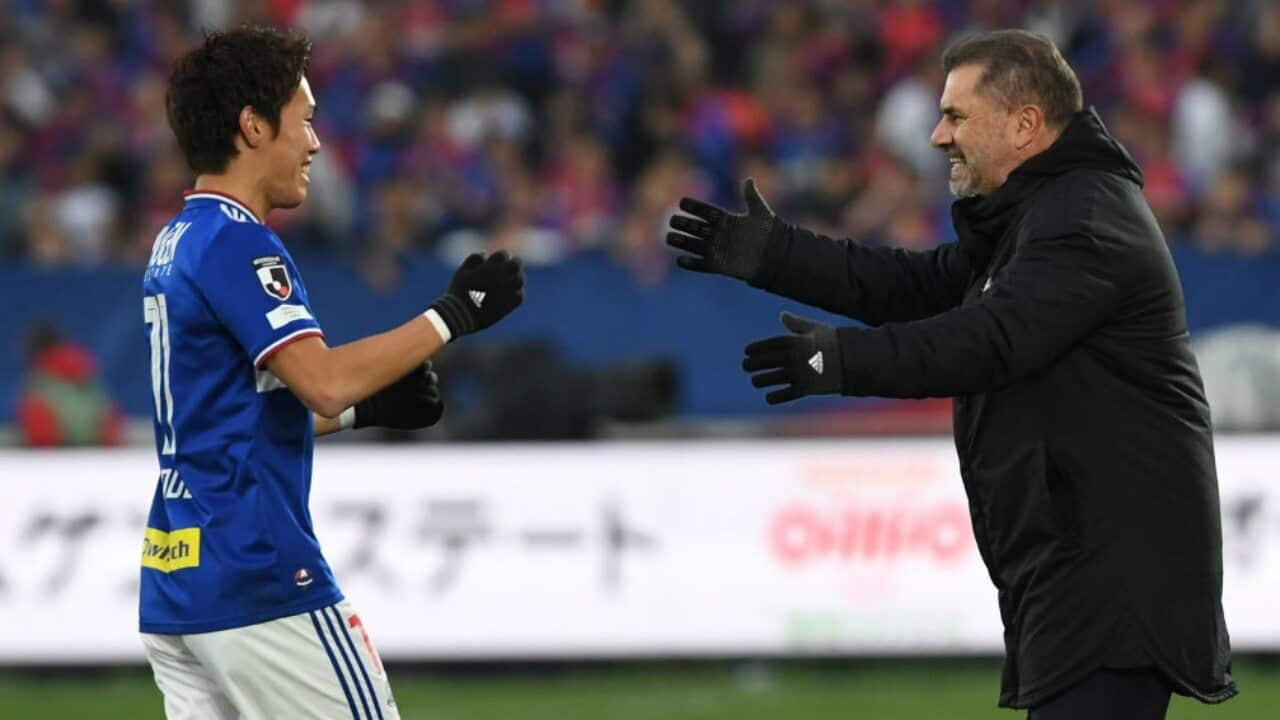Attention has already turned to Glasgow but on Sunday, the team that were led to the 2019 J1 League title will take on Consadole Sapporo without ‘The Boss’, and it will be a strange feeling.
Those fans knew it was the end on Wednesday as a much-changed Yokohama bowed out of the Emperor’s Cup after a shock penalty shootout defeat to fourth-tier outfit Honda FC.
The 55-year-old said after the game that he was really disappointed but that is not a word to be used when looking back at his three-and-a-half years in Japan.
It has been a thrilling ride and, more importantly, Postecoglou has changed Japanese football for the better.
His philosophy was apparent once again in that final match. It would have been easy to pick a strong team to ensure passage to the next round and to leave on a high but the Aussie was committed to thinking long-term and resting stars for Sunday’s game - even though he won’t be there - and giving fringe and young players a chance.
It is that kind of thinking that will be missed.
"The club wish the 'Boss' nothing but the best in the new challenge of his football managing career. He will always be part of Marinos Family," Yokohama said on their homepage.
The legacy is strong. On a basic level, the former Socceroos boss won the title in 2019 for a team that had not done so since 2004, a long time in a league that is less than 30 years old.
He did so playing attacking, aggressive and expansive football - not just when things were going well - but at all times.
There were a few wobbles among those upstairs in Yokohama during his first season, when the Marinos flirted with relegation. The axe could have fallen and would have done in many other Asian leagues. And yet, the club stuck to the coach who stuck to his principles and came through the other side.
That was a thrilling title win in 2019 but the seeds were sown the previous year as Postecoglou demonstrated that you can win the big prizes playing attacking football, at all times.
Peter Cklamovski, the number two at Yokohama in that title season, told me that since the arrival of the 2015 Asian Cup-winning boss, the number of teams in the J.League who wanted to play with the ball had jumped from one or two in 2018 to more than half two years later.
Cklamovski also demonstrates another aspect of the ‘Ange effect’.
Being an assistant at Yokohama in recent years has been a passport to a head coaching job. Cklamovski took over Shimizu S-Pulse in 2020 and while that didn’t go well, he is now in charge of Montedio Yamagata with results looking good.
Another assistant, Arthur Papas, was given the reins of Kagoshima United but left last month due to personal reasons.
Postecoglou may have lifted standards in Japanese football but he has also done wonders for the reputation of Australian coaching in Japan and Asia as a whole.
And it is Asia. Thailand have been watching as one of the country’s best players, Theerathon Bunmathan, is an integral part of that success.
The full-back has come on leaps and bounds under Postecoglou and has been perhaps Southeast Asia’s best and most successful export to East Asia, and this is something that should not be underestimated.
As important as any of that, however, is that Postecoglou has shown that you don’t have to be a European or South American to get a big job in Europe.
I have been covering Asian football for not far off 25 years and this is a first. It is something that we have all been waiting for.
The next step is, hopefully, success.
For all Postecoglou has done for Asian and Japanese football in the past few years, his contribution does not stop now.
Success in Glasgow will do wonders for the reputation of Australian and Asian coaches, and will open the door for others to follow.
Regardless of what happens in Scotland, the fact remains that Postecoglou has been the most influential foreign coach in Japanese history and will be missed up and down the entire country - not just in Yokohama.










